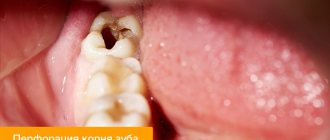Author's rating
Author of the article
Green Elena Stanislavovna
Otolaryngologist of the second category
Articles written
665
about the author
From time to time, each of us can feel the taste of iron in our mouths. Usually people do not pay attention to this for the reason that the aftertaste goes away within a few minutes. But what if he doesn’t leave you for a long time - days or even weeks? Here we can talk about various pathologies. What does a cough with a metallic taste mean, why does belching occur with a metallic taste - more on that later.
The mechanism of the appearance of taste sensations
It is not always easy for even doctors to determine the cause of the taste in the mouth.
Special receptors, mostly located on the papillae of the tongue, are responsible for the sensation of taste in humans. A few receptors are located on the palate and back of the pharynx. All of them are sensitive to several dozen different tastes and their combinations.
Taste sensitivity, like an ear for music, is individual for each person; it can be developed and improved, achieving the ideal taste, like tasters or sommeliers. Despite individual differences, the sensation of the five basic tastes: salty, sweet, sour, bitter, and the taste of meat products is accessible to absolutely everyone.
When a product hits the taste buds, the sensations they receive travel through nerve fibers to the brain. A full sensation and perception of taste is impossible without its combination with smell.
When abnormal sensations such as a metallic taste appear, occurring suddenly, without any apparent connection or cause, it is necessary to find out the etiology of this symptom in order to correct your condition, especially if such sensations occur regularly.
What symptoms require immediate medical attention?
You should postpone visiting a doctor, or better yet, call an ambulance if you have the following symptoms:
- Sputum interspersed with blood.
- Attacks of suffocation.
- Presence of injury.
This does not mean that if you have other symptoms you should not see a doctor.
The visit can only be postponed for a few hours or days, but in no case should it be canceled completely.
External factors causing a metallic taste in the mouth
These reasons may be associated both with the influence of external factors and with physiological changes in the body. For example, metal can be felt when drinking certain brands of mineral water enriched with iron ions. Iron can reach your taste buds through untreated tap water passing through worn and rusty pipes. The solution in this situation is to use a high-quality cleaning filter.
The use of aluminum pots and cast iron cauldrons and frying pans may cause a metallic taste to be added to the traditional taste of food, especially if sour foods were cooked in it. In this case, the metal of the kitchen utensil reacts with food acids, salts are formed, and this is what is felt by the one who tastes this food.
Metal crowns can also cause a metallic taste, especially if they were installed a long time ago. Acidic foods can react with the metal ions in your dentures, creating a faint but very unpleasant taste.
Diagnostic methods
Making the correct diagnosis is the key to correct treatment. Remember that only a doctor should prescribe it to you and diagnose the disease. When visiting a medical institution with a similar complaint, you will be sent for the following studies:
- Blood analysis. This analysis will evaluate blood hemoglobin, the number of red blood cells, white blood cells, and platelets.
- Blood chemistry. This test helps detect increases in certain chemical components of the blood, including Iron, iron transport proteins and other compounds.
- X-ray for suspected diseases of the respiratory system.
- Computed or magnetic resonance imaging.
- Endoscopy of the esophagus and stomach if diseases are suspected in them.
- Bacteriological culture. If your doctor suspects a bacterial infection, he or she may order a culture to identify the pathogen.
In each specific clinical case, the combination of diagnostic methods is unique, although it corresponds to the general research schemes.
Physiological conditions as a cause of metallic taste
Piercing as a cause of metallic taste in the mouth
If you do not pay enough attention to oral hygiene, you can soon experience this unpleasant symptom. Tartar, bleeding gums, periodontitis, plaque on the teeth and tongue - all these problems affect the appearance of distorted taste sensations.
The use of high-quality toothpaste and mouth rinse, the use of dental floss, and timely sanitation of teeth and gums can eliminate this problem. Hormonal changes in a woman’s life are certainly reflected in changes in the chemical composition of certain environments in her body.
In particular, menopause, pregnancy, and lactation change some positions of the blood formula. This is why sometimes a metallic taste appears in the mouth of women, especially often during pregnancy. Working in hazardous industries, accidents involving exposure to chemical compounds, and unfavorable environmental conditions can cause poisoning, one of the symptoms of which is the taste of metal in the mouth. Mercury, zinc, lead, copper, and arsenic are especially dangerous in this regard.
If poisoning with these chemicals occurs, then the metallic taste is accompanied by symptoms such as:
- Intense thirst.
- Continuous headache.
- Confusion.
- Nausea and vomiting.
- Dizziness.
- Pain in the abdomen and muscles throughout the body.
Without seeking medical help, a person with similar symptoms of poisoning may die or become disabled. A condition that is not as dangerous, but still very unpleasant and also accompanied by a metallic taste in the mouth, can be anemia, or iron deficiency. You can find out about its presence by donating blood for hemoglobin. Anemia can manifest itself with the following symptoms:
- Loss of strength, drowsiness.
- Headaches and dizziness.
- Dry skin, hair, brittle nails.
- Pale skin.
- Cardiopalmus.
- Cracks, or “jams” in the corners of the lips.
- Dry mouth, taste disturbances.
Although there is not enough iron in the body in this condition, it is its taste that becomes a frequent companion to anemia. It can be caused by an unbalanced diet, an increased need for iron compounds during pregnancy and lactation, and rapid growth of children and adolescents.
In addition to iron deficiency, the same reasons can lead to hypovitaminosis - a lack of individual vitamins or their groups. And just as with anemia, the taste of metal in the mouth can be a companion to this condition. Hypovitaminosis may cause irritability, drowsiness or insomnia, and decreased physical and intellectual potential. Taking vitamin complexes and enriching your diet with healthy foods will solve this problem.
How to distinguish a cough with coronavirus from other diseases
Is it possible to distinguish a “coronavirus” cough? kp.ru talked about this with the chief pulmonologist of the Ministry of Health of the Russian Federation, head of the department of pulmonology of the medical faculty of Sechenov University, Doctor of Medical Sciences, corresponding member of the Russian Academy of Sciences Sergei Avdeev.
HOW OFTEN DOES COUGH OCCUR WITH CORONAVIRUS?
— Sergei Nikolaevich, do you always have a cough with coronavirus?
- No. Cough occurs in approximately 30 to 50% of patients with COVID-19. That is, in more than half of cases with coronavirus there is no cough. At the same time, there are many other diseases that are in no way related to coronavirus infection, in which a person coughs. So, if you have a cough, this is not a reason to go get tested for COVID.
— Can we suspect coronavirus based on some features of the cough?
- No we can not. This is a normal dry cough, no different from a cough caused by other viral infections.
— Doctors say: if you have coronavirus not in severe form, stay at home and only when shortness of breath begins, call a doctor. But many people got used to, just starting to cough, drinking syrups, breathing over boiled potatoes, and so on. What if it’s coronavirus, won’t we aggravate the disease in such ways?
- No, it is unlikely to get worse from such procedures. But you are unlikely to help yourself cope with this infection if you are treated with vapors from boiled potatoes or other inhalations. The main recommendation is not to leave the house anywhere. Because today, in most cases, coronavirus infection is treated at home.
— Nowadays, with acute respiratory infections, people once again try not to call a doctor.
— In my opinion, there is a rational grain in this. The more contacts we have, including in medical institutions, the greater the risk of contracting coronavirus infection. Therefore, if someone has an acute respiratory infection in a mild form according to the usual scenario for non-severe respiratory diseases, it makes sense not to go anywhere and get treatment on your own.
WITH BRONCHITIS AND ASTHMA - AT RISK ZONE?
— Is coronavirus even more dangerous for people with bronchitis or asthma than for others? Maybe it makes sense for them to somehow additionally protect themselves?
— In fact, those most at risk of contracting coronavirus infection are not those who have bronchitis or asthma, but people suffering from diabetes, obesity and arterial hypertension. For all patients who are on some kind of maintenance therapy, it is very important to continue to use it without changing it in any way. Take the same medications and in the same dosages as prescribed by your doctor.
As for additional measures to reduce the risk of coronavirus infection, they are well known to everyone. This is self-isolation and hygiene. They are effective and beneficial for all people.
WHAT HAPPENS TO THE LUNG IN ASYMPTOMIC DISEASE
— They say that up to 60% of infected people experience this infection asymptomatically. What happens to the lungs?
— There may be slight changes in the lungs. For example, mild pneumonia is possible. This is an amazing situation; this has never happened before in medical practice, but a patient with coronavirus infection can suffer mild pneumonia without symptoms and recover. And this is already an irrefutably proven fact.
— Can such pneumonia turn into a severe form?
— If pneumonia remains asymptomatic, how can it become severe? As a rule, such diseases proceed according to a favorable scenario. I think many Russians have already suffered from coronavirus infection and didn’t even notice. Antibody-based methods for studying this infection will soon be widely available, then we will understand how many people we actually have had COVID. If we are talking about a mild course of this disease, then pneumonia can go away and leave almost no traces in the lungs. I am sure that this is exactly what happened to many Russians.
- But if pneumonia takes on severe forms, will we notice it by fever and cough?
- No, shortness of breath comes first here. In severe cases of the disease, this is the very first warning sign that you need to consult a doctor as soon as possible and decide on further treatment.
LUNG DAMAGE AFTER CORONAVIRUS: TEMPORARY OR FOREVER?
— Is it possible to get sick with coronavirus without damaging your lungs at all?
- I think yes.
— Is it even possible to recover from coronavirus?
— The vast majority of patients are cured.
— I have heard the opinion that even those who seem to be cured of coronavirus still have serious lesions in the lungs: fibrosis that does not resolve, changes in the structure of the lung tissue. Is it so?
Metallic taste is a symptom of disease
A metallic taste in the mouth is a reason to see a doctor.
Diseases of the gastrointestinal tract, in addition to specific symptoms at the location of the pathology, are often accompanied by the appearance of various tastes in the mouth, and a metallic taste is no exception. Most often it accompanies the following diseases:
Treatment methods
It is quite difficult to talk about treatment, since the iron taste in the mouth is only a symptom that is often accompanied by some diseases of both the respiratory, digestive and circulatory systems.
It is necessary to treat not the symptom itself, but the disease that was the cause. The treatment method for each of the above cases is different.
For example, with anemia, the main task is to eliminate the cause of its development and replenish the supply of hemoglobin, iron, and red blood cells in a person’s blood.
In case of poisoning with metal salts, urgently begin detoxification therapy.
Side effects of medications that affect the appearance of foreign taste
A metallic taste in the mouth may occur while taking medications.
When using a number of medications, a metallic taste may accompany their use, being a side effect of the medications. These are the following groups of drugs:
- Medicines to lower cholesterol levels.
- Medicines used to treat gout.
- Antidiabetic drugs.
- Medicines for the treatment of asthma.
- Antidiabetic drugs.
- Antibiotics.
- Corticosteroids.
- Antihistamines.
- Antifungal drugs.
- Antihistamines.
- Medicines to regulate blood pressure.
In most cases, this taste will cease to be felt with the end of drug therapy, however, this side effect of the drug should be reported to the attending physician.
How to get rid of the problem
If the cause of this is not a symptom of a disease, or a change in physiological state, you can try to eliminate the problem by rinsing with a salt solution (a teaspoon per half liter of water), drinking fruit and vegetable juices. You can chew propolis, ginger root, fresh mint leaves, and add dried spices to drinks.
Brushing your teeth after every meal, using rinses, dental floss for additional cleaning of interdental spaces, brushing your tongue with a special brush - all these measures will help get rid of the unpleasant taste in your mouth. Timely installation and replacement of dentures and dental sanitation can solve the problem.











